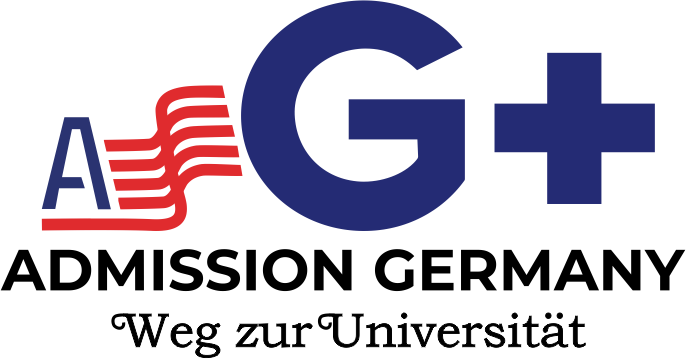Studying in Germany has become a dream for thousands of international students who wish to gain high-quality education at an affordable cost. Germany’s public universities are globally renowned for their strong academic reputation, world-class research, and tuition-free education for many programs. However, for students coming from countries with different schooling systems, there’s an important step before university admission — the Studienkolleg.
If you’re an international student planning to pursue higher studies in Germany, it’s crucial to understand what a Studienkolleg is, whether you need it, how to apply, and how to excel once you’re there. This comprehensive guide will walk you through everything you need to know about the Studienkolleg system — in clear, professional, and practical terms.
1. What Is Studienkolleg?
A Studienkolleg is a preparatory college in Germany designed for international students whose secondary school qualifications do not meet the requirements for direct admission to a German university.
In simple words, it’s a bridge program between your home country’s school education and the German higher education system. It ensures that international students reach the same academic level as German students before they start university studies.
The program usually lasts for two semesters (one year) and focuses on preparing students both academically and linguistically for the challenges of studying in a German university.

2. Why Does Studienkolleg Exist?
Every country has a different education system. In some countries, students complete 12 years of schooling before university, while in others, it may be 13. German universities expect students to have a certain number of years and academic depth before starting higher education.
For example, if you completed your high school in India, Pakistan, Nepal, Bangladesh, or many other countries with a 12-year education system, your school-leaving certificate (such as 12th grade or A-levels) may not directly qualify you for admission to a German university.
Germany follows a 13-year pre-university system, so you must bridge the gap — and that’s where Studienkolleg comes in.
It helps ensure that all students entering a German university have equivalent preparation and are ready to handle the academic rigor of higher education in Germany.
3. Who Needs to Attend Studienkolleg?
You will typically need to attend a Studienkolleg if:
- Your school-leaving certificate does not qualify for direct entry to a German university.
- You come from a country where secondary education is less than 13 years.
- You wish to apply for a Bachelor’s degree program in Germany.
However, not every international student needs it. If your previous education is recognized as equivalent to the German Abitur (university entrance qualification), you can directly apply to a university.
For example:
- You need a Studienkolleg if you completed 12 years of schooling in India and haven’t done a university year.
- You don’t need a Studienkolleg if you already completed one or two years of a recognized university program in your home country.
- You don’t need it for most Master’s degree programs, as Studienkolleg is meant only for undergraduate preparation.
4. Types of Studienkolleg in Germany
Studienkollegs are divided into different subject-oriented courses, depending on what you plan to study at university. You must choose the one that matches your intended field of study.
Here are the main types:
| Studienkolleg Type | Focus Area | Suitable For |
|---|---|---|
| T-Kurs | Technical, mathematical, and natural sciences | Engineering, Computer Science, Mathematics, Physics |
| M-Kurs | Medical and biological sciences | Medicine, Pharmacy, Biology |
| W-Kurs | Business, economics, and social sciences | Management, Finance, Economics, Political Science |
| G-Kurs | Humanities, languages, and art | Literature, History, Philosophy |
| S-Kurs | Social sciences | Sociology, Education, Psychology |
Choosing the right course is essential because it determines what subjects you’ll study at Studienkolleg and what bachelor’s programs you’ll be eligible for afterward.
5. Public vs. Private Studienkollegs
There are two main types of Studienkollegs in Germany — public and private.
Public Studienkollegs
- Run by state universities.
- Usually tuition-free (you may pay a small semester contribution of €100–€400).
- Admission is highly competitive.
- The language of instruction is mostly German.
- You must pass an entrance exam (Aufnahmeprüfung) to get in.
Private Studienkollegs
- Privately operated institutions.
- Tuition fees typically range from €2,000 to €10,000 per year.
- Often have smaller classes and more personalized support.
- Offer both German and English-taught courses in some cases.
- Easier admission process, though still requires proof of academic background.
Both types are officially recognized and prepare you for the same qualification — the Feststellungsprüfung (final assessment test).
6. Admission Requirements for Studienkolleg
Admission to a Studienkolleg involves several steps, and requirements can vary depending on the institution. However, here are the general prerequisites you’ll need:
- Valid secondary school certificate (equivalent to 12 years of schooling).
- Proof of German language proficiency, typically at B1 level for entry and B2 level for the final exam.
- Passport copy and visa documents (for non-EU students).
- Motivation letter and academic transcripts.
- Passing the entrance examination, which usually includes tests in German and Mathematics (and sometimes subject-specific sections).

7. How to Apply for Studienkolleg
Applying for a Studienkolleg can be done in two main ways — through Uni-Assist or directly to the university.
Step 1: Check if You Need a Studienkolleg
Use the official Anabin or DAAD Admission Database to check if your previous qualifications allow direct university entry or require a Studienkolleg.
Step 2: Choose the Right Studienkolleg
Decide whether you prefer a public or private Studienkolleg and select the one that matches your desired field (T, M, W, G, or S-Kurs).
Step 3: Prepare Your Documents
Gather your academic certificates, passport, transcripts, and German language proof. Get them officially translated into German and notarized if needed.
Step 4: Apply via Uni-Assist or Directly
Some Studienkollegs require applications via Uni-Assist, while others accept direct applications. Follow the instructions carefully for your target institution.
Step 5: Take the Entrance Exam
If your application is accepted, you’ll be invited to take the Aufnahmeprüfung (entrance exam). This test ensures you have the academic and language skills required.
Step 6: Receive Admission and Apply for Visa
Once you receive your admission letter, apply for a student visa at your nearest German embassy or consulate.
Step 7: Arrive in Germany and Start Your Course
Most Studienkollegs start in March (summer semester) or September (winter semester). Attend orientation, register at the local authorities (Anmeldung), and begin your studies.
8. What Is the Feststellungsprüfung (FSP)?
At the end of your Studienkolleg, you must take the Feststellungsprüfung (FSP) — the final assessment exam.
This exam determines if you’re ready for university studies in Germany. It includes both written and oral tests in subjects related to your chosen course track (T, M, W, etc.), as well as a German language component.
If you pass, you receive a certificate qualifying you to apply to German universities for relevant Bachelor’s programs. If you fail, you may usually repeat it once.
9. Duration and Structure of Studienkolleg
The program lasts one academic year (two semesters). Classes usually run Monday to Friday, with around 25–30 hours per week.
The curriculum includes:
- Subject-specific courses (e.g., mathematics, physics, biology, economics).
- Intensive German language training.
- Academic writing and communication skills.
- Cultural orientation and study techniques.
This structure helps students transition smoothly into the German academic environment.
10. Cost of Studying at a Studienkolleg
The cost depends on whether you attend a public or private Studienkolleg.
- Public Studienkolleg: Usually free tuition, but you pay semester contributions (€100–€400) and living expenses (€700–€1,000 per month).
- Private Studienkolleg: Tuition can range from €2,000 to €10,000 per year, plus the same living expenses.
Overall, you should budget around €10,000–€12,000 per year to cover all costs comfortably.
11. German Language Requirements
Since most Studienkollegs are taught in German, language proficiency is key.
Minimum Levels:
- B1 for admission.
- B2 or higher to pass the final exam and succeed in class.
You can prove your proficiency through recognized tests such as TestDaF, Goethe-Zertifikat, or DSH.
Some private Studienkollegs also offer English-medium courses, but if you plan to study at a public university later, you’ll still need strong German skills.
12. How to Succeed in Studienkolleg
Studienkolleg is a demanding year that requires dedication, discipline, and adaptability. Here are some expert tips to help you succeed:
1. Master the German Language Early
German is the medium of instruction for most courses. The better your command of the language, the easier it will be to understand lectures, complete assignments, and perform well in exams.
Start learning before you arrive — aim for at least a solid B1 or B2 level.
2. Develop Strong Study Habits
German education focuses on independent learning, critical thinking, and active participation. Be prepared to study consistently, take notes, and engage in class discussions.
3. Manage Your Time Wisely
Balancing German language improvement, subject learning, and cultural adaptation takes time. Use planners or digital tools to organize your schedule effectively.
4. Seek Support When Needed
Most Studienkollegs have counselors and language tutors. Don’t hesitate to ask for help if you’re struggling academically or emotionally.
5. Practice for the FSP Exam
Familiarize yourself with past exam formats and practice regularly. The FSP is crucial — passing it is your key to university admission.
6. Embrace the Culture
Living in Germany can be a big change. Try to integrate, make German friends, and learn the customs. It will make your experience more enriching and reduce homesickness.
13. After Studienkolleg: What Comes Next?
Once you pass the Feststellungsprüfung, you are officially qualified to apply for a Bachelor’s degree program in Germany.
You can then apply to universities in your chosen field. Your Studienkolleg track (T, M, W, G, or S-Kurs) determines which courses you’re eligible for.
For example:
- T-Kurs graduates can apply for engineering or computer science.
- M-Kurs graduates can apply for medicine or biology.
- W-Kurs graduates can apply for business, economics, or management.
Your Studienkolleg year will also give you strong German language skills, which will be a huge advantage during university life.
14. Advantages of Attending a Studienkolleg
- Academic Foundation: Builds a solid base for your chosen field.
- German Language Mastery: Helps you reach fluency before university.
- Cultural Adjustment: Introduces you to life, values, and education in Germany.
- Better University Readiness: Increases your confidence and success rate in university courses.
- Networking Opportunities: You’ll meet international students who share your journey.
15. Common Challenges and How to Overcome Them
While Studienkolleg is rewarding, it’s not without challenges.
| Challenge | Solution |
|---|---|
| Language Barrier | Start learning early, practice daily, and immerse yourself in German media. |
| Cultural Differences | Stay open-minded, attend intercultural workshops, and make local friends. |
| Academic Pressure | Manage time, stay consistent, and use available support systems. |
| Homesickness | Stay connected with family while engaging in campus and community life. |
16. Tips from Successful Students
- “Don’t underestimate the entrance exam.” Prepare thoroughly in math and German.
- “Stay consistent.” The one-year program passes quickly, so keep up with studies from day one.
- “Speak German daily.” Even outside class — it improves your fluency and confidence.
- “Plan your next step early.” Research universities and courses before finishing Studienkolleg.
- “Enjoy the journey.” Studienkolleg is not just academic; it’s a life experience that builds independence.
17. Final Thoughts
Studienkolleg is not just a preparatory year — it’s a transformative experience that opens the doors to world-class education in Germany. It bridges the gap between different education systems, equips students with essential language and academic skills, and helps them integrate into German culture.
If you’re serious about studying in Germany and your qualifications don’t meet direct admission requirements, Studienkolleg is your golden opportunity.
Approach it with dedication, curiosity, and persistence, and you’ll not only pass your Feststellungsprüfung but also build a strong foundation for success in your future university life.
In Summary
| Key Aspect | Details |
|---|---|
| Duration | 1 year (2 semesters) |
| Purpose | Prepares international students for German universities |
| Types | T, M, W, G, S-Kurs |
| Language | Mostly German |
| Entrance Exam | Required for most public Studienkollegs |
| Final Exam | Feststellungsprüfung (FSP) |
| Cost | Free in public; €2,000–€10,000 in private |
| Outcome | Eligibility for Bachelor’s degree programs in Germany |
Conclusion:
A Studienkolleg is much more than a formality — it’s a bridge to your dreams. If you plan carefully, prepare diligently, and immerse yourself fully, your time at Studienkolleg will set you on the path to academic excellence and a bright future in Germany.



Recent Comments